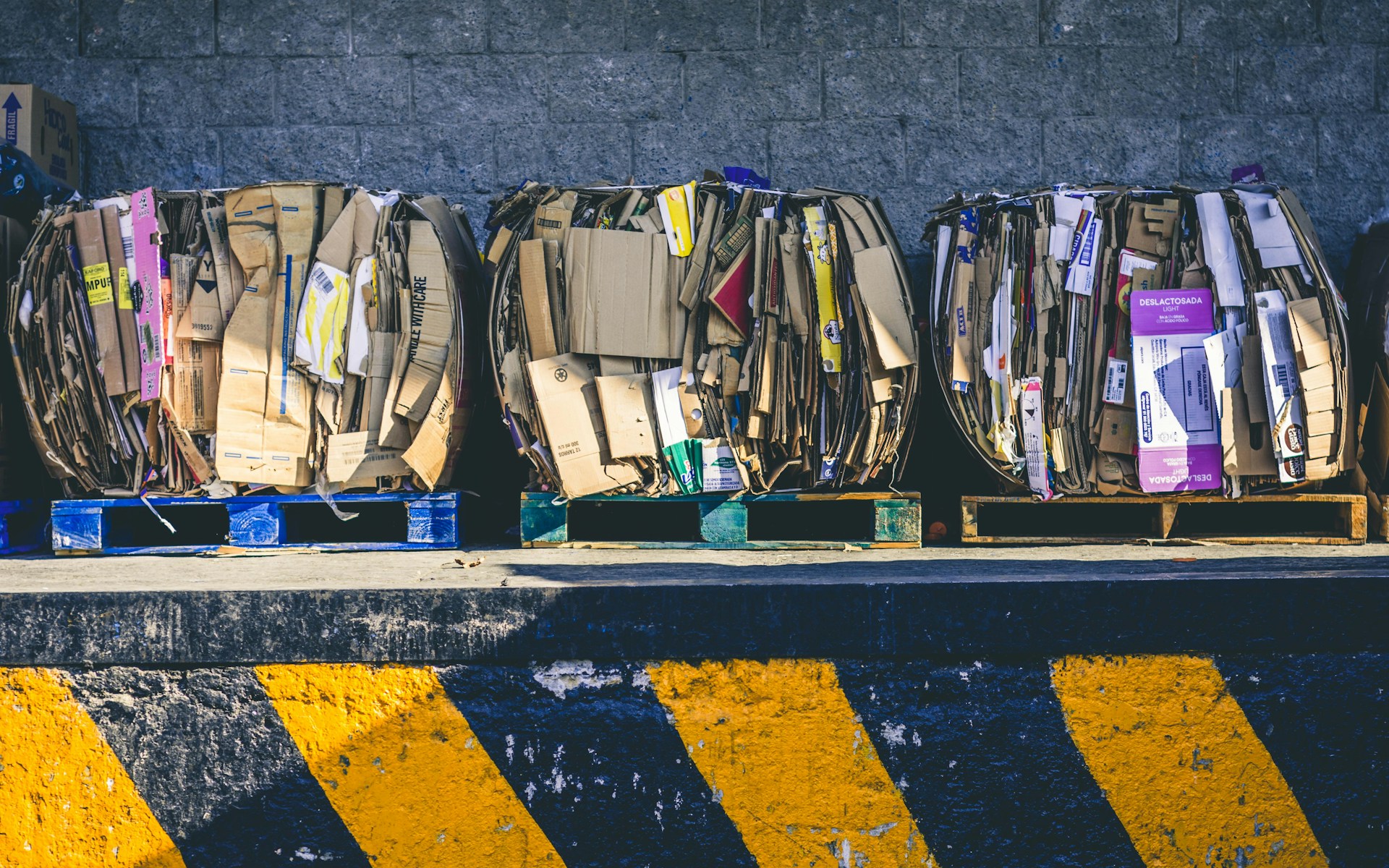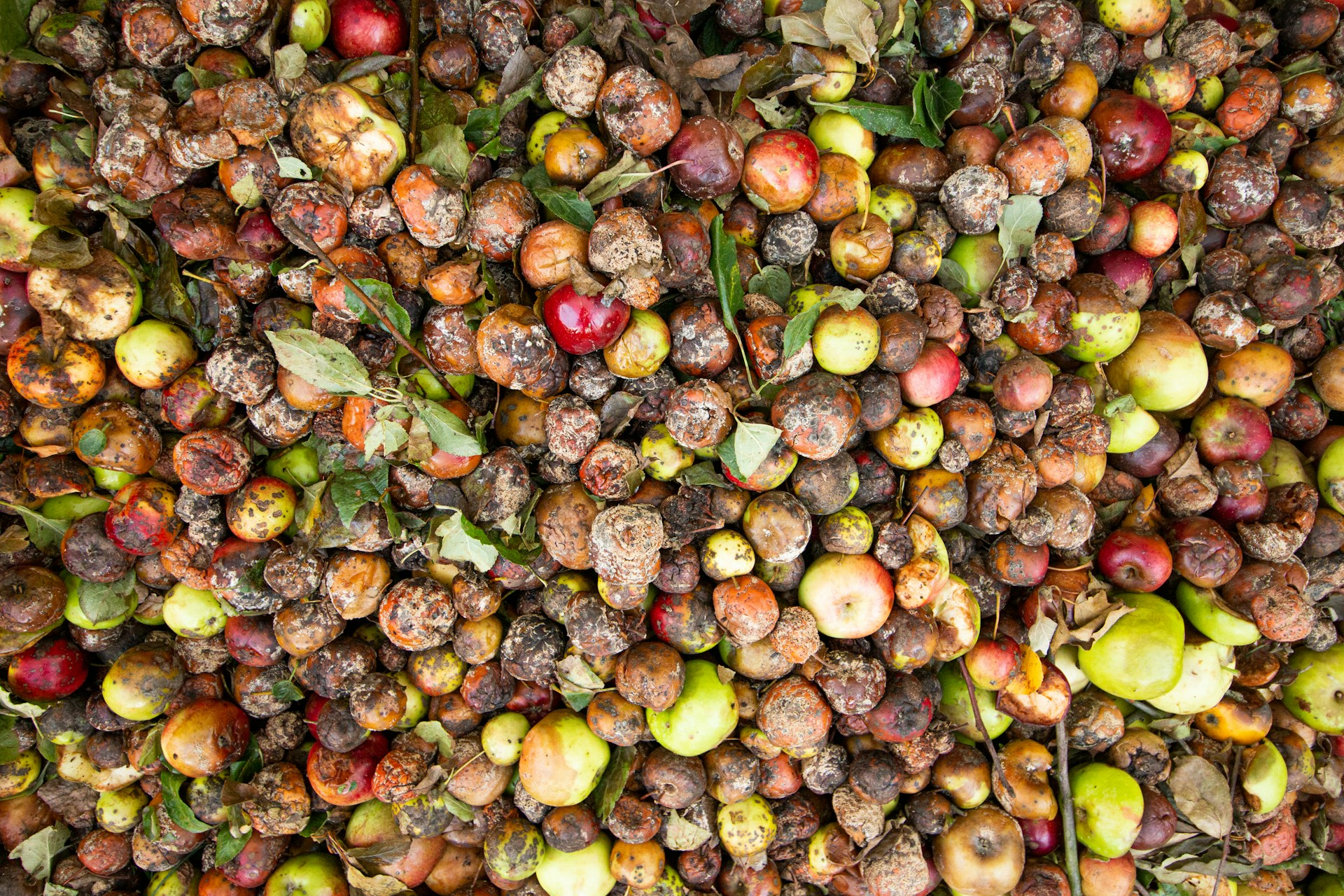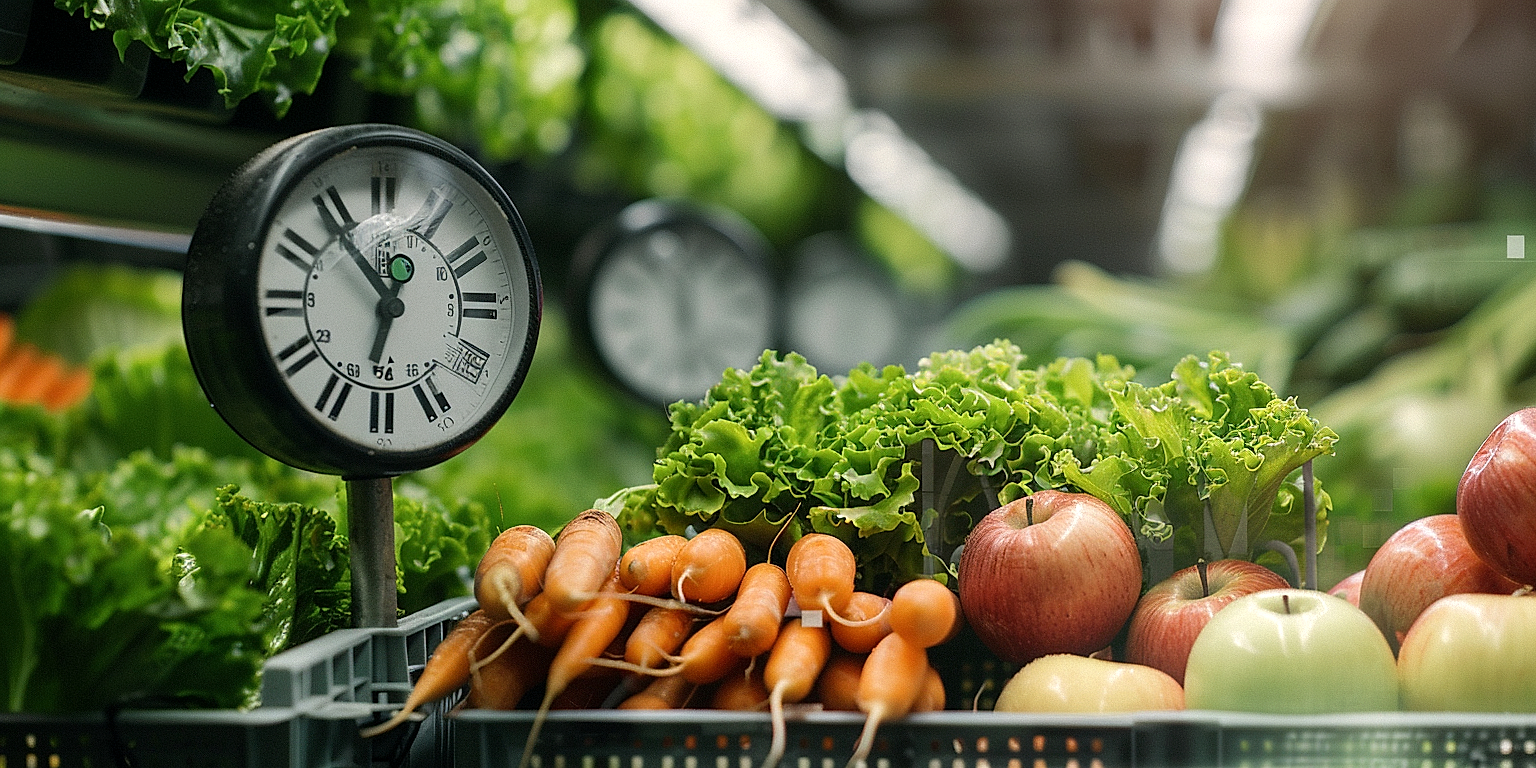Waste management has long been a pressing issue in the field of produce processing.
With the rise of technology, it presents numerous opportunities to address this challenge in a more efficient and sustainable way.
Innovations in this sphere are not only improving productivity but also significantly reducing the environmental footprint.
This progress has the potential to have profound implications for the sector, the environment and society at large.
Today, we will delve into the various technological advancements redefining the approach towards waste management within produce processing.
It is our aim to highlight the importance of these developments and underscore their critical role in propelling the industry forward.
Contents
Technologies Enhancing Waste Management In Produce Processing
1. Advanced Sorting Machinery for Waste Segregation
Advanced sorting machinery plays a pivotal role in the management of waste generated in produce processing.
These machines are specially designed to separate different types of waste based on their physical properties such as size, weight, and material type.
Automated sorting systems are capable of processing large quantities of waste swiftly and efficiently.
Such machines use sophisticated technology including infrared sensors, air jets, and conveyor belts to separate waste components.
The use of advanced sorting machinery greatly reduces the amount of manual labor required in waste management, thereby increasing operational efficiency.
These machines are highly precise, thus helping to avoid contamination during the waste segregation process.
The sorted waste can be easily recycled, reused, or composted depending on its properties and type, hence promoting sustainability.
Modern sorting techniques allow for the extraction of valuable materials from waste, which can potentially generate revenue.
Advanced sorting machinery helps improve the economic viability of produce processing through effective waste management.
These machines are scalable and can be adapted to handle varying volumes of waste depending on the scale of operations at the produce processing facility.
Integration of advanced sorting machinery with other technologies such as AI and IoT can further enhance waste management operations.
Regulatory compliance is also facilitated through the use of advanced sorting machinery as it helps in the systematic disposal of waste.
Advanced sorting machinery contributes towards environmental conservation by significantly reducing waste that ends up in landfills.
These machines are critical in establishing a sustainable waste management cycle in the produce processing industry.
Thereby, Advanced sorting machinery forms the backbone of effective and sustainable waste management in the produce processing industry.
Thus, the importance of investing in advanced sorting machinery cannot be overstated for any produce processing operation looking to enhance the effectiveness of its waste management system.
2. AI-powered waste monitoring systems
Waste management, particularly in the produce processing industry, is increasingly adopting technology to enhance efficiency and impact.
Among the game-changing technologies is the AI-powered waste monitoring system.
This system uses artificial intelligence (AI) to monitor, categorize, and manage waste produced during processing, thereby playing a significant role in enhancing waste management.
One of the primary functions of AI-driven waste monitoring systems is identifying different types of wastes based on their physical properties.
Through machine learning algorithms, these AI systems learn to correctly distinguish and categorize different waste types, making segregation more accurate and efficient.
This accuracy is integral to waste management, as it ensures that each waste type is processed and disposed of in the most appropriate and eco-friendly manner.
Another key feature of AI-powered waste monitoring systems is that they can track the amount of waste generated in produce processing facilities.
By monitoring the quantity of waste, these systems can offer vital insights into the operations, helping to identify areas that generate excessive waste and proactively reduce it.
Aside from waste identification and tracking, AI-driven waste monitoring systems also facilitate the decision-making process in waste management.
They analyze waste trends and patterns, subsequently providing crucial data that supports result-driven decision making in waste reduction strategies.
Moreover, these systems also make it possible to predict future waste volumes, enabling more proactive and effective planning for waste management.
AI-powered waste monitoring systems not only enhance efficiency but also contribute significantly to sustainability in produce processing.
They help reduce landfill waste by ensuring proper waste segregation and recycling.
Moreover, by enabling waste reduction at the source, these systems significantly contribute to the reduction of greenhouse gas emissions associated with waste decomposition, particularly in landfills.
In addition to environmental benefits, AI-driven waste monitoring systems also have substantial economic implications.
By helping to reduce waste, they lower the costs associated with waste management in produce processing facilities, ultimately contributing to long-term cost savings.
Thus, AI-powered waste monitoring systems are revolutionizing waste management in produce processing, heralding a future of enhanced efficiency, sustainability, and cost-effectiveness in this industry.
3. Bio-digesters for organic waste conversion
In a bid to enhance waste management practices in the realm of produce processing, industries have adopted the use of bio-digesters for organic waste conversion.
This technology is an innovative solution that transforms organic waste into valuable resources such as biogas and biofertilizer.
Bio-digesters fundamentally operate through the process of anaerobic digestion where microorganisms break down organic materials.
The inception of this technology has caused a seismic shift in the paradigm of waste management, especially in produce processing industries.
Utilizing bio-digesters allows industries to convert their organic wastes into alternative sources of energy, leading to a more sustainable and economically viable waste management system.
The primary output of bio-digesters, biogas, serves as an eco-friendly, renewable energy source that can be harnessed to generate heat or electricity, hence contributing enormously to the reduction of fossil fuel dependency.
This is not only beneficial environmentally but also helps industries to substantially reduce their operational costs.
Apart from biogas, bio-digesters produce a by-product known as digestate which is a nutrient-rich substance and can be used as a biofertilizer, thereby providing a sustainable alternative to chemical fertilizers.
Thus, the use of bio-digesters essentially creates a ‘zero-waste’ model, further promoting the concept of a circular economy.
The ease of operation and maintenance, compactness and high efficiency of bio-digesters make them an ideal solution for organic waste management in produce processing.
These attributes have facilitated the proliferation of bio-digester technology across a multitude of produce industries, considerably improving their waste management practices.
Despite the multiple merits, it is essential to understand that efficient operation of a bio-digester requires a well-structured waste segregation system.
Organic waste suitable for bio-digestion includes kitchen waste, agricultural residue, and certain types of industrial waste, hence the need for proper waste sorting is undeniable.
Furthermore, to optimize the performance of bio-digesters, factors such as temperature, pH, the presence of appropriate bacteria, and the ratio of various types of waste materials must be carefully monitored and controlled.
However, on mastering these aspects, bio-digesters prove as game-changers in the realm of waste management particularly in produce processing industries.
This technology not only handles the mounting issue of organic waste disposal, but also adds substantial value by converting such waste into usable products.
4. IoT-based smart waste collection systems
The rapid advancement in technology has brought forth a set of new tools to improve waste management in produce processing, notably, the IoT-based smart waste collection systems.
This system is a game-changer, it ensures a more strategic and cost-effective waste management approach in processing plants.
By leveraging the power of the Internet of Things (IoT), waste management experts can monitor waste generation and disposal patterns in real-time.
The system includes sensors attached to waste bins that send signals over the network regarding the fill-level of bins.
This data aids in optimizing waste collection schedules and routes, thus resulting in improved operational efficiency.
IoT-based smart waste collection systems can dramatically reduce the frequency of waste collection, slash fuel costs, lessen the workload of staff, and trim operational expenses overall.
These technologies can also identify irregularities or sudden surges in waste generation.
This can help plant managers to address waste generation issues proactively and devise interventions to reduce waste.
Smart waste management powered by IoT can also contribute to sustainability practices in produce processing industries.
For instance, as these systems provide data about the exact time bins reach their fill-level, unnecessary and inefficient pick-ups can be avoided.
This could potentially translate into reduced carbon emissions, a key factor in mitigation of climate change.
Moreover, the data gathered by IoT-based smart waste collection systems can inform recycling efforts.
Knowing the composition, volume, and source of waste can help companies better understand their waste footprint and devise sound recycling strategies.
The transparency and accountability that IoT-based systems establish can also encourage a greater commitment to sustainability and waste minimization from all stakeholders.
The adoption of such technology in waste management demonstrates a forward-thinking approach to one of the most critical issues facing food processing industries today.
In sum, adopting IoT-based smart waste collection systems may require initial investment but the long-term benefits of operational efficiency, cost savings, and sustainability make it a worthy investment.
5. Sensor-based waste tracking and analytics
In the modern era of things, the rise of sensor-based waste tracking and analytics, within the realm of enhanced waste management, has proven to be a game-changer in produce processing.
These systems make use of advanced sensors and data analytics mechanisms to perfectly monitor, track and manage waste in real time.
By automatically identifying and categorizing waste materials, these technologies can significantly reduce the time and effort required in the waste segregation process.
The sensors employed in these systems have the capability to detect different material properties of the waste, such as their weight, color, size, and type.
This property detection allows for the precise sorting of waste, promoting efficient recycling and limiting the amount of waste that ends up in landfills.
Sensor-based waste tracking and analytics provide an outstanding platform for accurate and real-time waste data collection and interpretation, resulting in more informed waste management decisions.
Moreover, with the utilization of data analytics, these systems can adequately analyze waste patterns and make predictions for future waste generation.
Such predictions prove valuable in planning and implementing effective waste management strategies.
Real-time tracking also ensures that waste is collected on time, preventing the accumulation of waste and in turn, reducing the risks of health hazards and environmental pollution.
Furthermore, by providing data on the volume of waste produced, the types of waste products, and their potential recycling value, sensor-based systems can assist businesses in adhering to waste management regulations and formulating sustainable strategies.
These sensor-based waste tracking and analytics not only increase operational efficiency but also offer significant savings in terms of cost, time and resources.
The integration of these systems with other technologies such as Artificial Intelligence (AI) or Internet of Things (IoT) can significantly boost the efficiency of waste management.
For instance, when combined with AI, these sensors can improve decision-making processes on the ground level by enabling smart waste receptacles to notify the relevant authorities when they are nearing capacity.
In a similar vein, the integration of sensor-based systems with IoT can lead to the development of smart waste containers that provide notifications on fill-level and even guide waste collection routes using GPS coordinates.
All these functionalities hold the potential to revolutionize the way waste is managed in the produce processing industry, thus making sensor-based waste tracking and analytics an essential focus in studies related to environmental technology.
The Bottom Line
With ever-evolving technology, strides are being made in every field, including waste management.
Advanced sorting machinery, AI-powered monitoring systems, bio-digesters, IoT-based collection systems and sensor-based tracking tools are all showcasing the capability of innovative tech to revolutionize how we handle and treat waste.
It’s clear that these technological advancements are not only improving operational efficiency but also contributing to more sustainable and environmentally-friendly waste management solutions.
By leveraging these modern tools, we can move closer to achieving a zero-waste growth and a more sustainable future for all.




